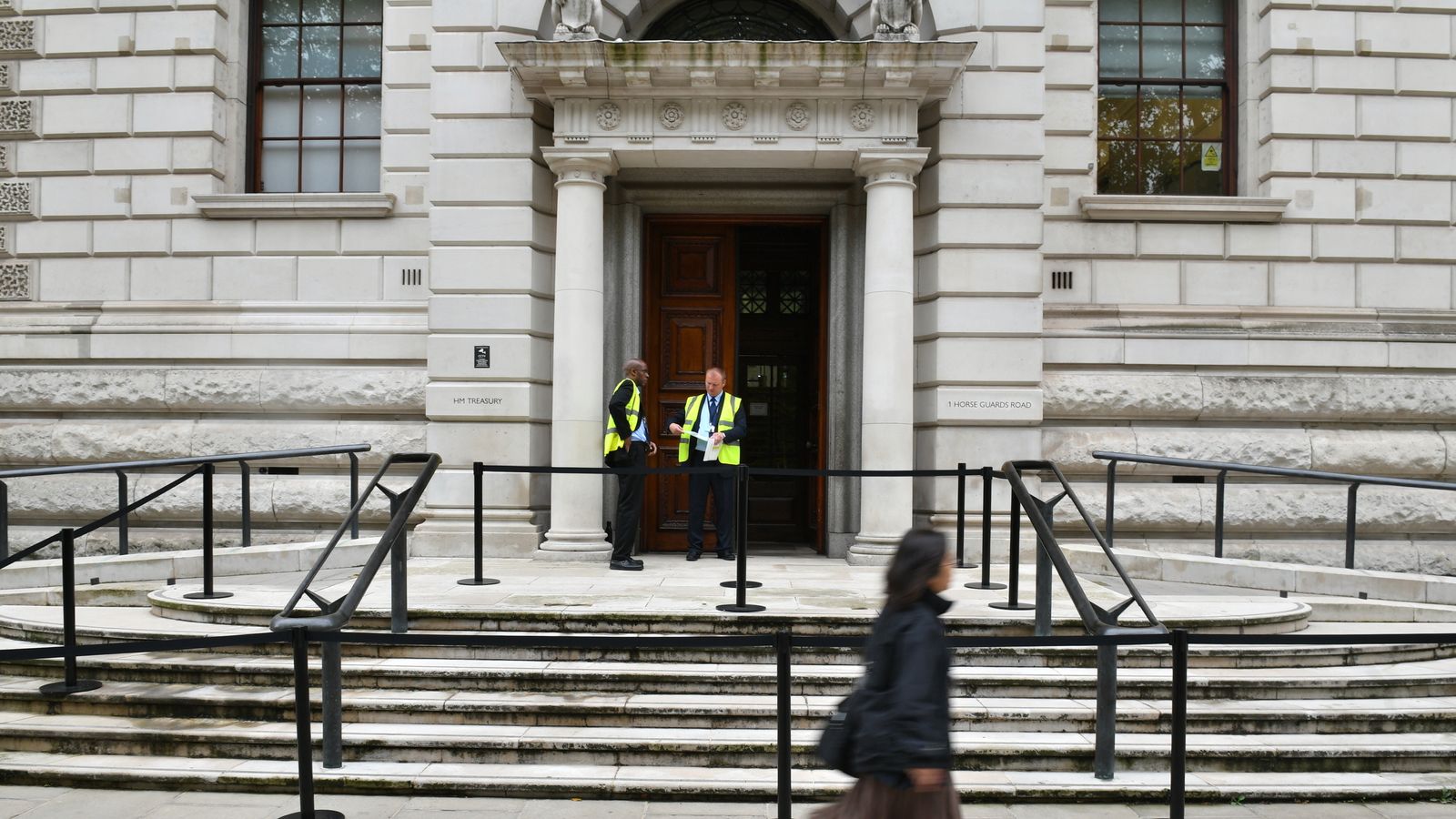Treasury orthodoxy has won.
Kwasi Kwarteng’s tax-cutting mini-budget has been all but ripped up and a chastened government is now having to admit to the public that a fresh wave of austerity – in the form of both tax increases and, in all probability, public spending cuts – lies in store.
In truth though, it is not Treasury orthodoxy that has won, but the bond market.
As was noted on the day of the mini-budget, when gilts, UK government bonds, began to sell off, the so-called ‘bond vigilantes’ have returned to impose fiscal discipline on the UK government by selling its bonds and, in so doing, forcing up its borrowing costs.
It was, as has been noted several times over the last two weeks, the kind of punishment beating usually meted out on emerging market economies. And that was no coincidence.
As Larry Summers, a former US treasury secretary during Bill Clinton’s presidency, told Bloomberg TV at the height of the gilt sell-off: “The UK is behaving like an emerging market turning itself into a submerging market.”
Gilt yields – implied government borrowing costs – have fallen now that Jeremy Hunt, the new chancellor, has unwound most of his predecessor’s unfunded giveaways. So, too, have market expectations of where Bank rate will peak in the Bank of England‘s current rate-tightening cycle.
Seven things you need to know about the mini-budget U-turn | Ed Conway
Jeremy Hunt reverses ‘almost all’ tax cuts in mini-budget and says energy bills support scheme to be scaled back
Chancellor to reveal parts of his medium-term fiscal plan today, Treasury says
But both remain higher than they were prior to Mr Kwarteng’s mini-budget. Credibility has been lost among investors and more will now need to be done to win them back.
The end of Truss?
Some have asked whether gilt yields and market expectations over the peak in Bank rate might fall further were Liz Truss to resign as prime minister.
This feels doubtful. Markets are dispassionate and care more about policies than about personalities. The reason why the gilt market reacted so positively on Friday last week to initial reports that Mr Kwarteng had been sacked were because he personified policies the market felt were not credible. His sacking sent a message to the market that a change of policy was coming and, firstly on Friday afternoon with the scrapping of the freeze in corporation tax rates and again on Monday with the scrapping of other mini-budget measures, that was duly delivered.
Besides, unless a newly-empowered politician completely repudiates the policies on which they have campaigned, markets have usually priced in the impact of that politician. Tony Blair’s famous words in May 1997 that “we campaigned as New Labour and we will govern as New Labour” actually sent the stock market up because investors were reassured by those words and by the decision soon afterwards of Gordon Brown, the new chancellor, to give the Bank of England operational independence.
Read more:
Truss has just removed one of her biggest remaining arguments for staying in power
Tax U-turns will come at high political price for Liz Truss – but alternative might be more painful
Similarly, when Margaret Thatcher was ousted by her own MPs in November 1990, the markets largely took the news in their stride. Her replacement by John Major did not trigger sufficient changes in policy to rattle the markets. The one really big policy change that Sir John did enact, the abolition of the Poll Tax and its replacement with the Council Tax, did carry with it a major spending commitment but, as this was paid for by an increase in VAT in the spring 1991 Budget, it was fiscally neutral. Markets were relaxed.
So the departure of Ms Truss would be unlikely, of itself, to spark further moves up or down in gilt yields. The market has already decided that Mr Hunt, not her, is now running the government’s economic policy.
By the same token, though, gilt yields seem unlikely to move dramatically before 31 October unless strains materialise, as they did over the strategy used by pension funds known as liability driven investment (LDI), in another hitherto little-known corner of the financial services industry.
The big moves have already happened and the chancellor’s next job is to come up with another £30bn or so in fiscal tightening. If he can do that convincingly, he might be rewarded with another fall in gilt yields, but it seems unlikely to happen before then.
That is not to say that there are not still lessons to be learned from this episode.
And one of them might be for the Labour Party which, currently, is riding high in the opinion polls.
A future warning
For the events of the last month carry a warning for the party. If the bond vigilantes are capable of beating up the government for offering unfunded tax cuts, as they have, they are also more than capable of punishing a future Labour government for making unfunded spending commitments.
That is why Rachel Reeves, the shadow chancellor and a former economist at the Bank, has been extremely careful in providing costings for all spending commitments made by Labour. She knows that, since the disasters of the 1970s and perhaps even before then, Labour has always been held by financial markets to a higher standard than the Conservatives when it comes to setting out spending commitments.
She will already be rethinking some of her plans. Labour had, for example, promised to reintroduce the 45p top rate of tax, initially scrapped by Mr Kwarteng, in order to pay for an expansion in the number of NHS doctors and nurses.
But she will also find it increasingly difficult to hold her current line.
For if Labour retains its current stratospheric poll ratings closer to a general election, Labour activists will be clamouring for more radical policies, just as they did ahead of Mr Blair’s 1997 landslide.







